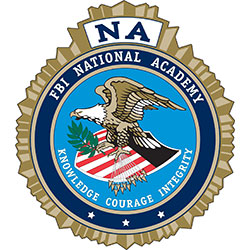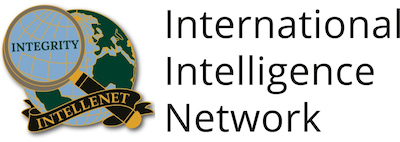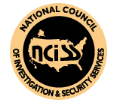Human trafficking is a grave and pervasive issue affecting millions of people worldwide, including right here in the United States. It involves the coercion, abduction, or exploitation of individuals for forced labor or sexual exploitation. Often referred to as modern-day slavery, trafficking victims endure severe abuse, manipulation, and control. The horrors of human trafficking can take place anywhere, from urban centers to remote areas, and traffickers often use various means of control such as physical violence, financial manipulation, and psychological abuse.
While women and girls remain the most common victims, men and boys are also frequently trafficked. Understanding the signs of human trafficking and knowing how to report suspicious activity can save lives and make a significant impact in the fight against this heinous crime.
What are the Signs of Human Trafficking?
Human trafficking victims are often concealed in plain sight. They may appear in everyday settings, from airports and bus stations to restaurants, hotels, and even residential neighborhoods. Traffickers go to great lengths to isolate and control their victims, which makes it crucial to remain vigilant. Below are the most common signs that someone may be a victim of human trafficking:
1. Physical and Emotional Indicators
- Visible Physical Abuse: Victims often display signs of physical harm, including bruises, cuts, burns, and scars in various stages of healing. Marks on the wrists or ankles might indicate physical restraint.
- Signs of Mental Abuse: Victims may appear fearful, anxious, or unusually submissive. They might exhibit a “numb” demeanor or avoid making eye contact with others. If a person seems afraid of their companion, this is a significant red flag.
- Lack of Autonomy: Victims may not have control over their personal identification documents (e.g., passports or ID cards) and often rely on their trafficker for money, healthcare, and even their most basic needs.
2. Behavioral and Social Indicators
- Inability to Speak Freely: A victim may seem unable to speak for themselves or may have someone else answer questions for them, especially in public settings. They may seem prohibited from talking or looking at others.
- Isolation: Victims may be frequently isolated from others, not allowed to contact family or friends, or prevented from accessing health care, education, or other essential services.
- Confusion and Disorientation: Victims may seem disoriented or unable to confirm their location or explain where they are staying. This is especially evident in transportation hubs, such as airports or train stations, where traffickers move their victims across state or national borders.
3. Unusual or Inconsistent Stories
- Contradictory Statements: Victims often give inconsistent or rehearsed answers to questions. When questioned about their location, origin, or plans, their responses may be vague or contradictory.
- Fear of Authorities: Trafficked individuals might show signs of extreme anxiety when law enforcement is nearby, fearing retribution or punishment from their traffickers.
4. Behavior Around Law Enforcement or Strangers
- Avoiding Law Enforcement: If a person is unusually afraid or anxious in the presence of law enforcement, it could indicate they are being controlled by a trafficker.
- Reluctance to Engage: They may appear overly compliant or reluctant to interact with authorities or strangers, particularly when asked direct questions about their situation.
What to Do if You Spot the Signs
If you suspect someone is a victim of human trafficking, it is vital to take the right actions, always prioritizing your safety and the safety of the potential victim. Never confront the trafficker directly, as it could escalate the situation and endanger both you and the victim. Here’s what you can do:
-
Avoid Direct Confrontation: If you feel safe, do not approach the suspected trafficker or victim. Traffickers can be dangerous and unpredictable.
-
Gather Information Discreetly: If possible, try to gather details such as the location, the appearance of the trafficker, and any distinguishing features of the victim. This information can be critical when reporting the situation to authorities.
-
Contact Law Enforcement: If there is a safe way to do so, discreetly call 911 or your local law enforcement agency. You can also reach out to the National Human Trafficking Hotline at 1-888-373-7888 or text 233733 to report suspected trafficking activities. Save these numbers in your phone ahead of time, so you are prepared to act quickly if you ever find yourself in a situation where you need to report trafficking.
-
Work with a Private Investigator: For in-depth investigations or if you believe someone is actively involved in trafficking activities, consider hiring a professional private investigator. Private investigators, like those at Bulldog PI, are trained to assess situations discreetly, gather crucial evidence, and work closely with law enforcement to dismantle human trafficking operations.
Why Private Investigators Play a Key Role in Combating Human Trafficking
Private investigators can play a vital role in identifying and dismantling human trafficking networks. With expertise in surveillance, intelligence gathering, and investigation, private investigators help law enforcement agencies uncover hidden trafficking operations. Bulldog PI, based in Myrtle Beach, Charleston, Columbia, Greenville, and Spartanburg, has extensive experience in human trafficking cases and can assist in identifying signs of trafficking, gathering evidence, and ensuring justice for victims.
By partnering with professionals who are trained to handle sensitive information and dangerous situations, you are helping to bring an end to human trafficking and support victims in their journey toward recovery.
Final Thoughts
Human trafficking is a critical issue that demands our attention. By being vigilant and knowing the signs, we can all contribute to the fight against this crime. Bulldog PI is committed to raising awareness, providing expert investigative services, and supporting efforts to stop human trafficking in South Carolina and beyond. If you suspect someone is a victim, don’t hesitate to act—your quick thinking and willingness to help could save a life.










